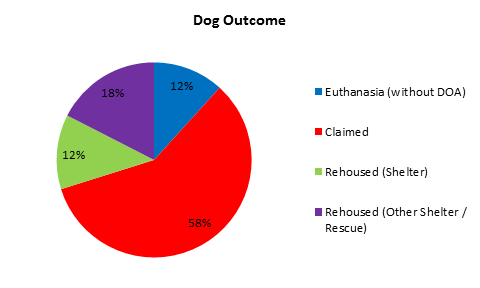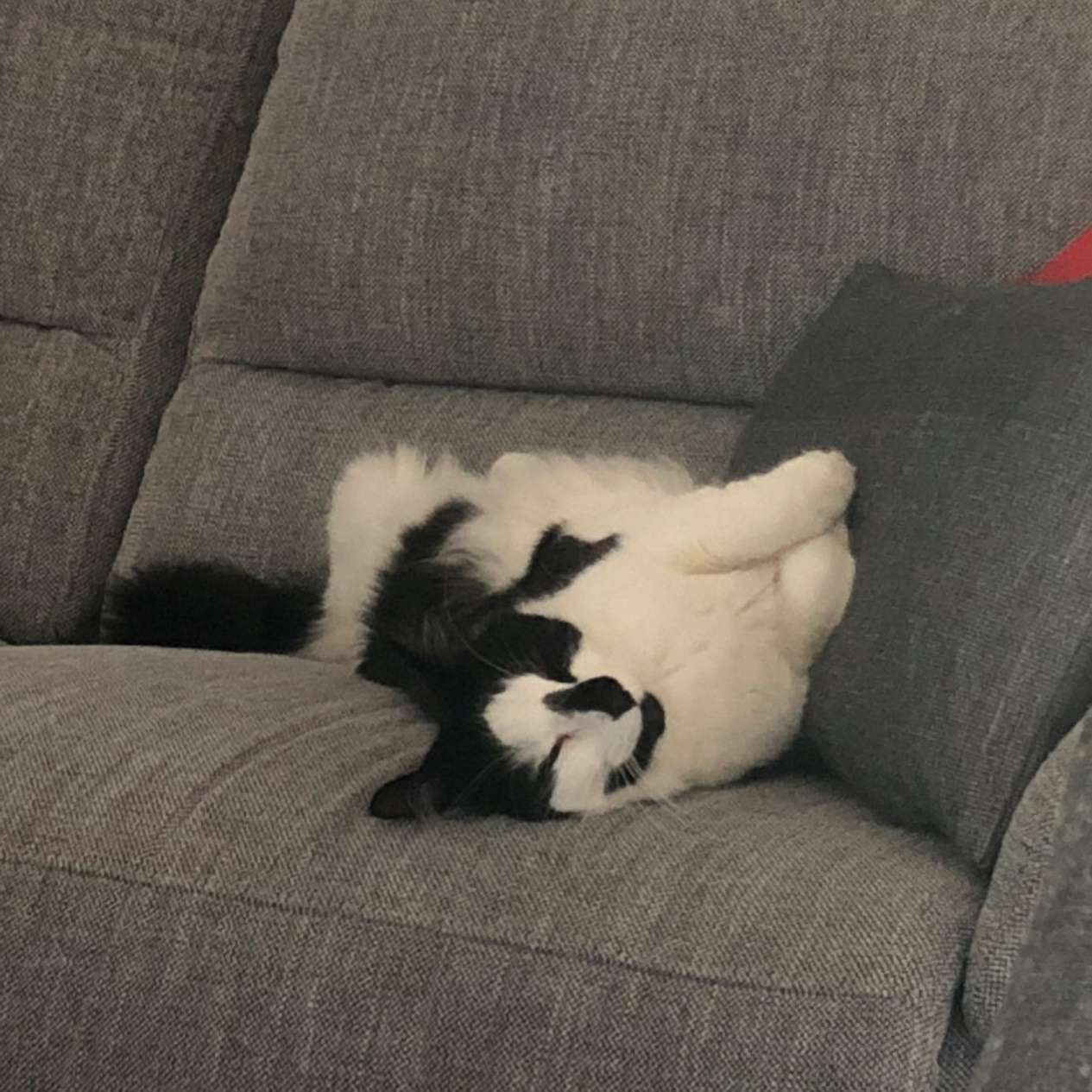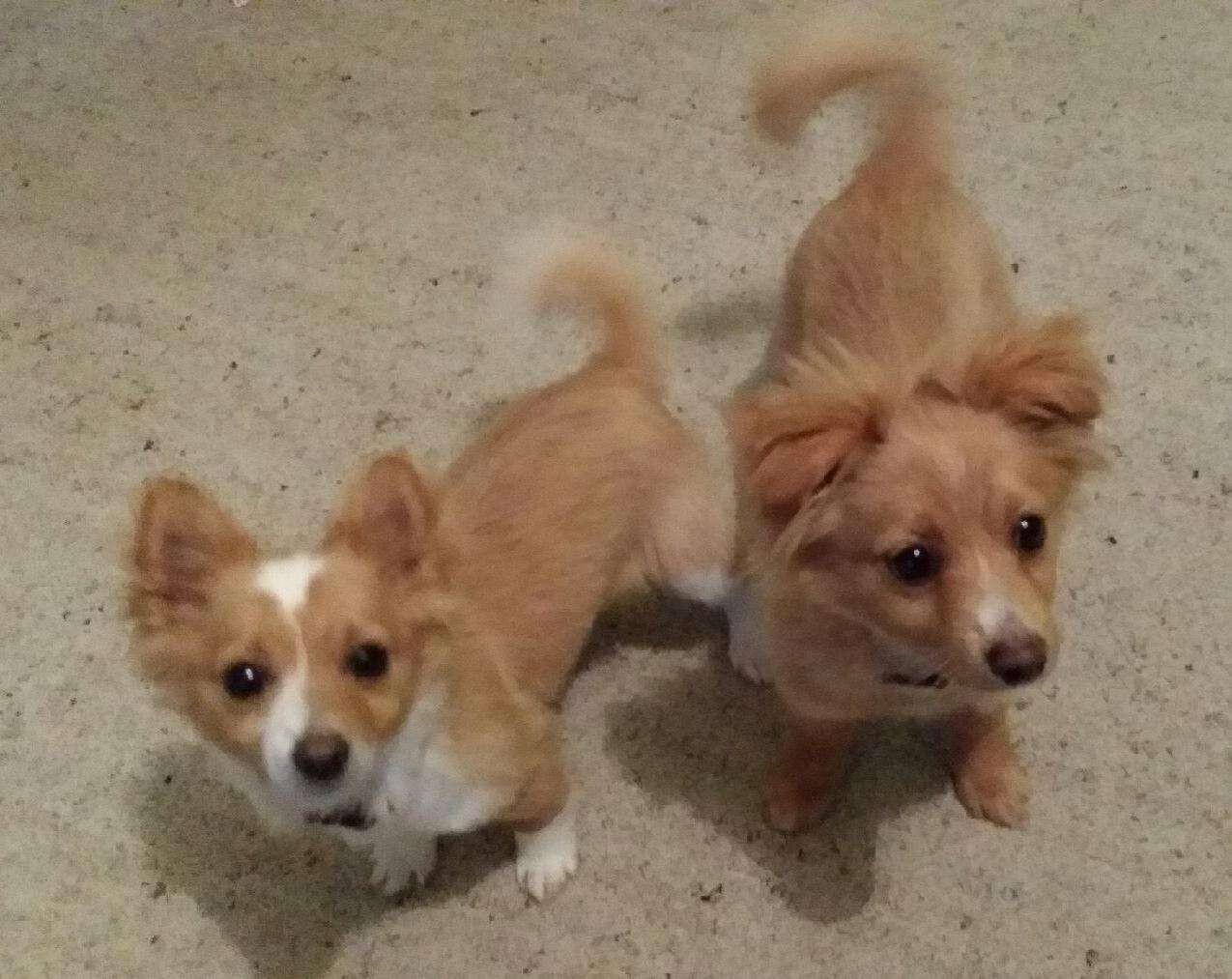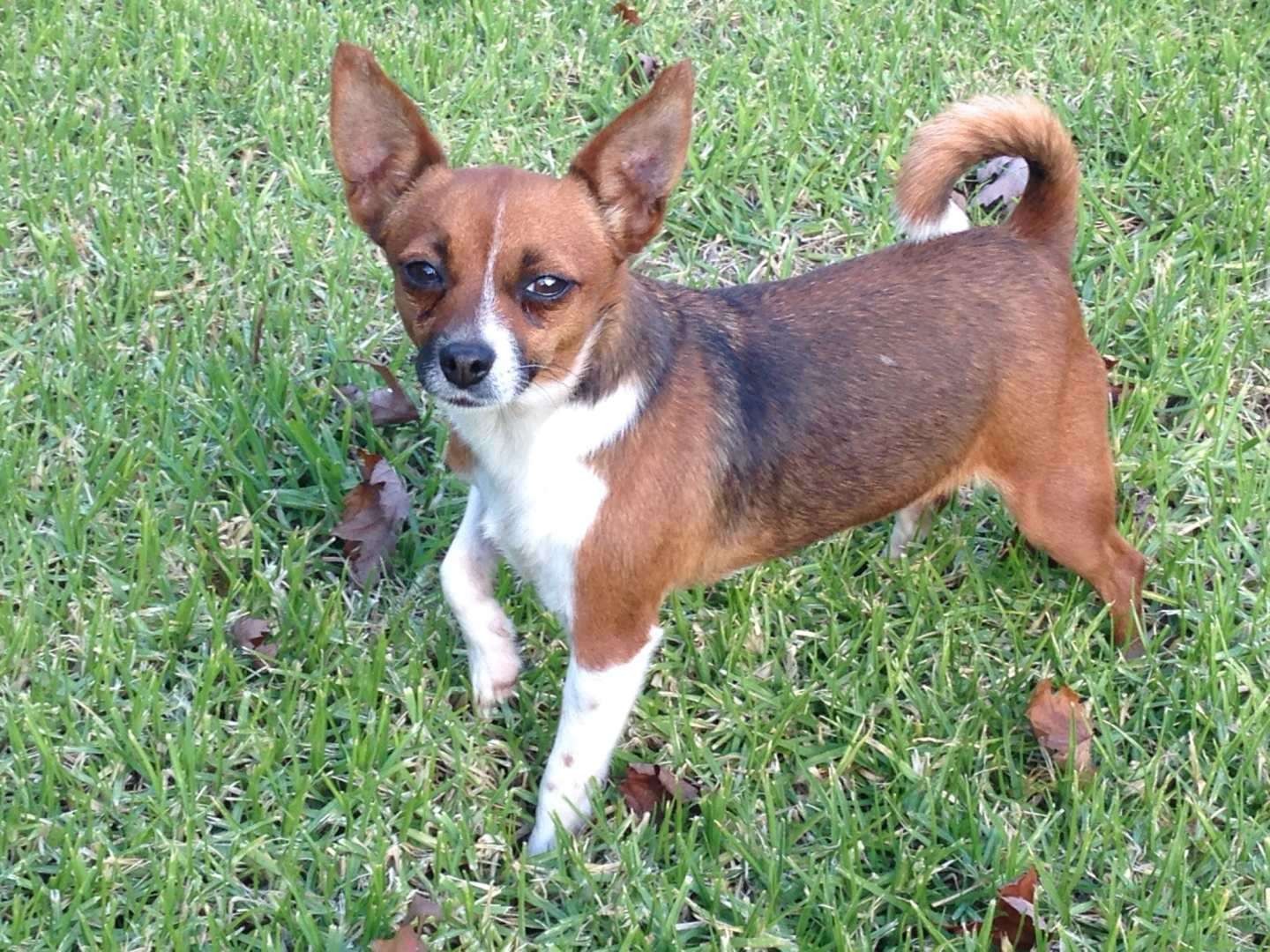Shepparton Animal Shelter Statistics
As part of our Domestic Animal Management Plan (DAMP), we've been working to decrease euthanasia rates of impounded and unclaimed animals at the Shepparton Animal Shelter.
Our progress so far…
The following statistics have been collated over a 10 year period.
Dogs
The comparison graph includes those seized as part of serious dog attack investigations, those surrendered for euthanasia, and those found deceased after being hit by a vehicle on local roads.
The implemented strategies have resulted in a continual decrease in the number of dogs euthanased. Since the implementation of the DAMP, the number of dogs rehoused has been higher than the number of dogs euthanased.

With the implementation of the DAMP, the last four years have seen a steady increase in the number of dogs claimed by their owners.
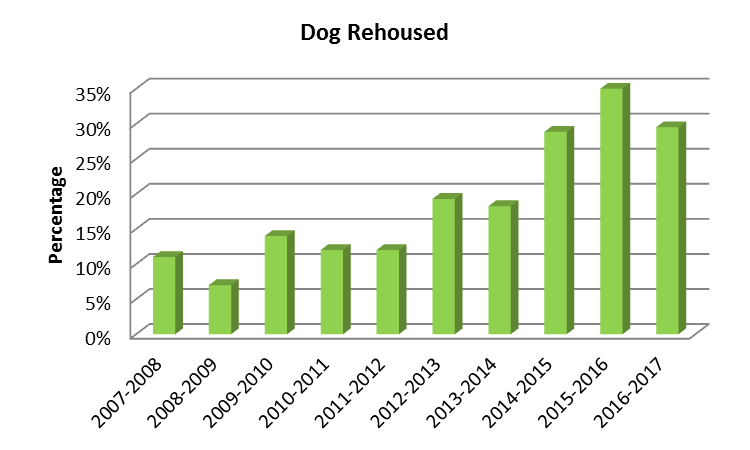
It is important to note that the decline in rehousing experienced in the 2016-2017 year compared to 2015-2016 is due to an increase in the number of dogs seized for serious dog attacks. These dogs have subsequently been euthanased either after being surrendered by their owners or as a result of a successful prosecution.
Abby
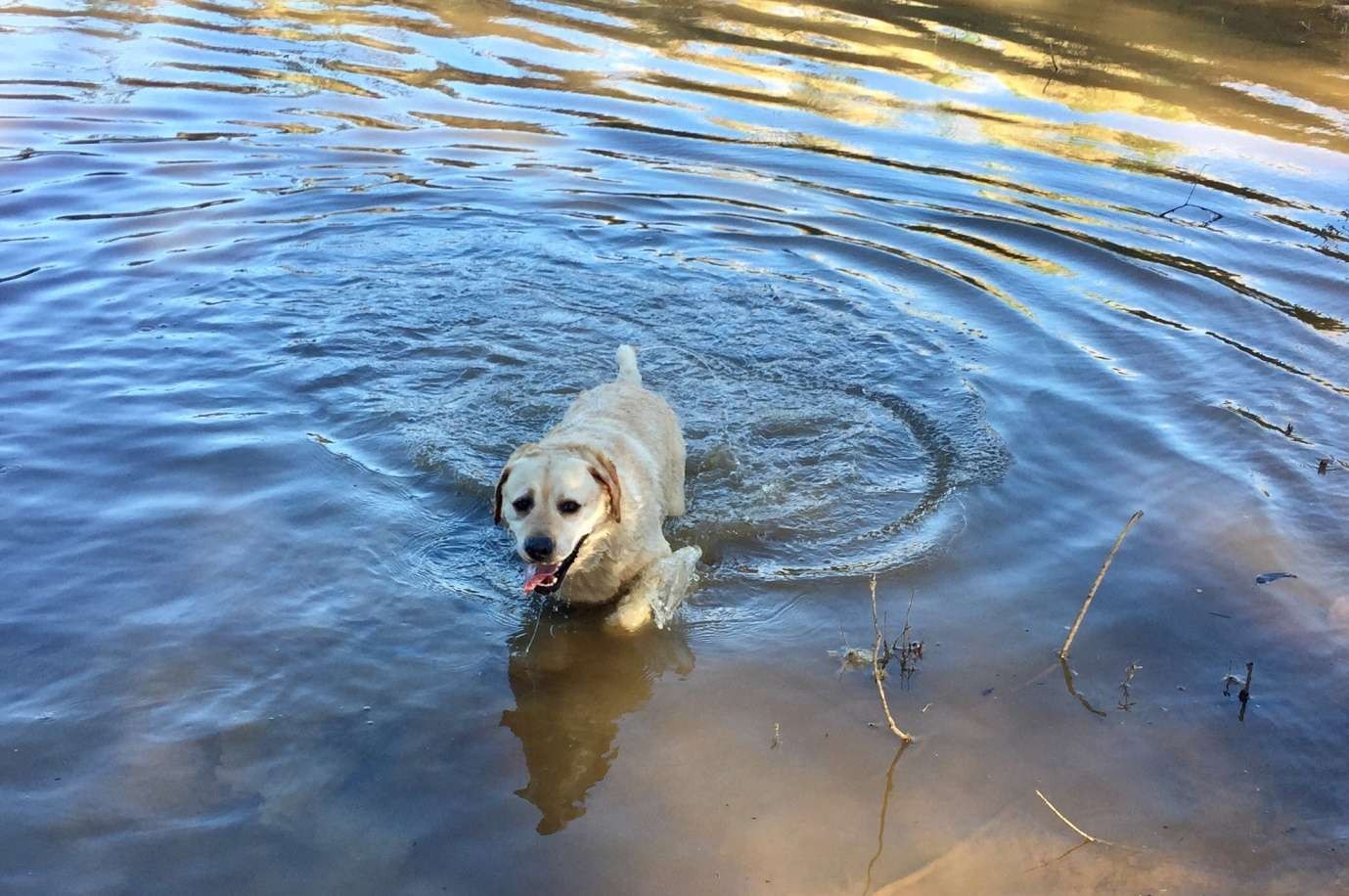
Abby arrived at the shelter as an overweight Labrador who loved her food. After a time in foster care to slim down a little, Abby has now been adopted by a wonderful family who recently emailed the shelter:
“Just wanted to send a quick update on Abby. She travelled perfectly in the car home and has instantly fitted in with our family. Our 6 year old is particularly taken with her. We gave her several baths and brushes and have discovered she doesn't really like a wash but she loves the pool, dam, buckets of water - any body of water really... I have attached a photo of Abby swimming in our dam. Tonight we'll visit the small permanent creek at the bottom of our place, I bet that will be a winner too!
Because of her weight we're avoiding food rewards, but a big tummy rub seems to be doing the trick with recall training reinforcement. Fetching will help with her weight loss I'm sure. She walked perfectly on the lead.
Thank you for letting us take her home. She is very special and is already healing our sadness over the loss of our old dog. It's been over 12 months since we've had a family dog, glad we found Abby!”
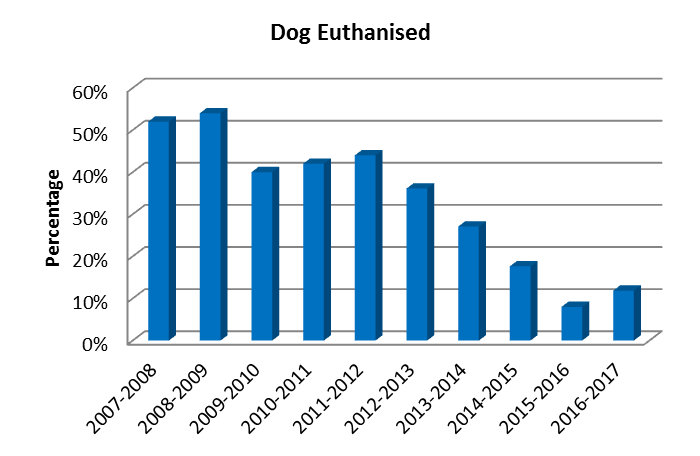
The Local Laws and Animal Management team continue to investigate and implement new strategies to ensure the Shepparton Animal Shelter rehouses every animal possible.
Some of the dogs euthanased were as a result of dog attack prosecutions or when their owners surrendered them for euthanasia due to aggression, dog attack or life threatening illness.
Officers continue to review options for potential rehabilitation and retraining of some of the behaviour issues identified in an effort to reduce the euthanasia rates further.
Cats
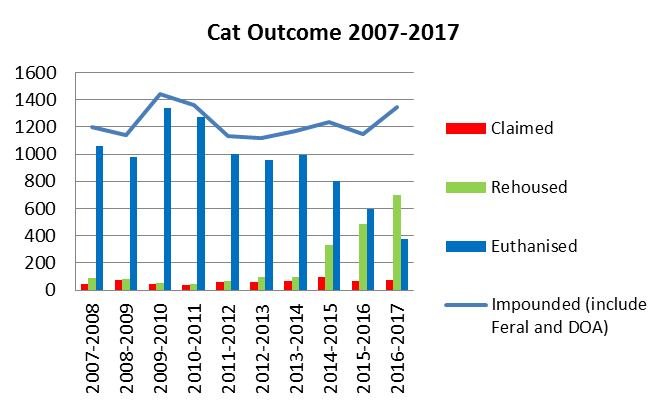
The comparison graph includes feral cats and those found deceased after being hit by a vehicle on local roads. The implemented strategies have resulted in a continual decrease in the number of cat’s euthanased. The 2016-2017 financial year was the first year of the Shepparton Animal Shelter’s records where the number of cats rehoused was significantly higher than the number of cats euthanased.
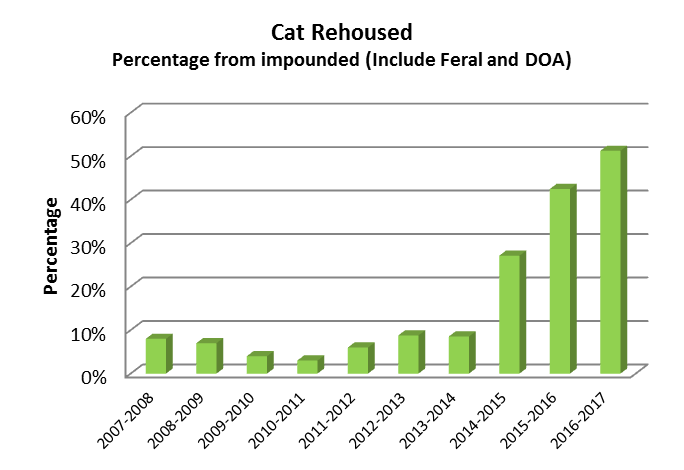
Over the last two years, the Local Laws and Animal Management department began to work closely with an Animal Shelter in Melbourne, in an attempt to continue to increase adoption rates.
In 2010-2011, the Animal Shelter rehoused 47 cats or 3% of the impounded animals. Over the last three years, new initiatives and programs have seen a dramatic increase in the number of cats rehoused: 100, 335 and 487 respectively. In 2016-2017 the number of cats rehoused was 697. We continue to work towards increasing the number of animals adopted.
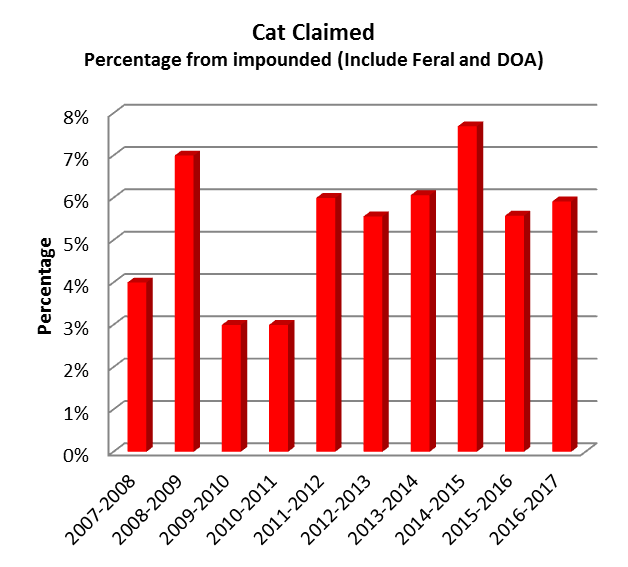
The Shepparton Animal Shelter has seen consistently low rates of owners claiming their cats from the shelter, which is relative to the number of cats being admitted without microchip or registration identification.
The Shepparton Animal Shelter has seen a high volume of cats presenting with cat-flu-like symptoms, which is a highly contagious, often deadly virus, which caused 52% of the cat euthanasia rate.
Prior to the implementation of the DAMP, the Shepparton Animal Shelter consistently had a cat euthanasia rate over 80%. Even with the high incidence of contagious diseases being detected in our cat population, the Shepparton Animal Shelter decreased the euthanasia rate over the last four years.

2016-2017 Statistics
The statistics below relate specifically to the 2016-2017 financial year.
| Admission | Dogs | Cats |
|---|---|---|
| Impounded | 643 | 1098 |
| Seized for Dog Attack | 15 | n/a |
| Surrendered | 127 | 210 |
| Animals collected from roadsides after being hit by vehicles | 8 | 35 |
| TOTAL | 793 | 1343 |
A wonderful home found for Missy!
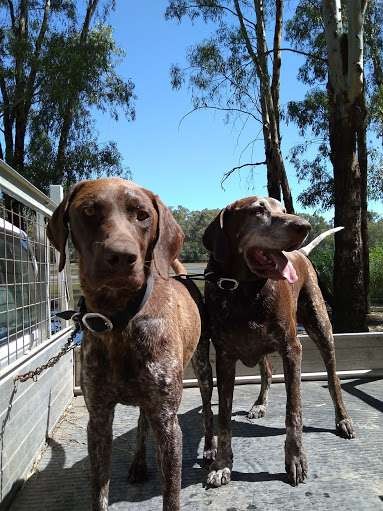
“4 weeks ago today we adopted a dog from you.
I am writing to say Merry Christmas and thank you for the gift of our Missy.
She is a normal destructive puppy (possibly crossed with a mountain goat) but she won our hearts from the outset and we are sure her behaviour will improve as we both have some leave coming up to spend the time with her.
Attached taken yesterday. They have a trip to the river each day when Tony gets home from work.
Merry Christmas”
Dog Admissions
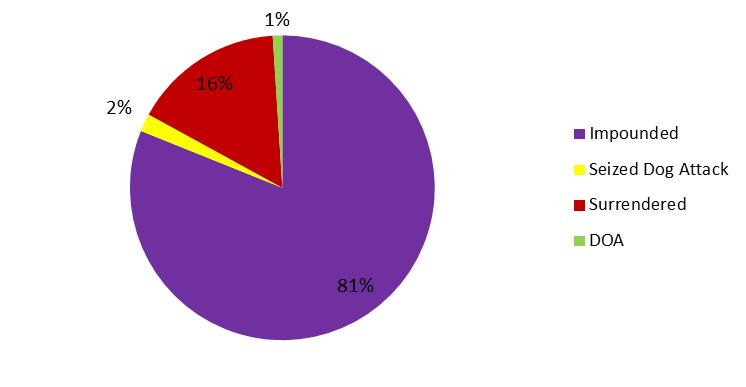
Cat Admissions
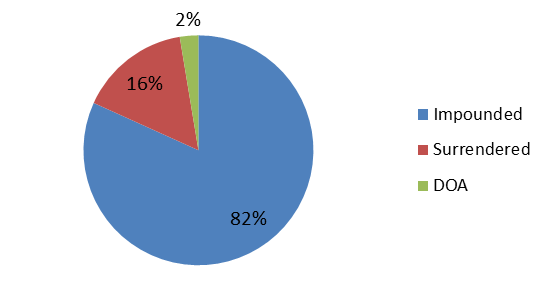
| Outcome | Dogs | Cats |
|---|---|---|
| Claimed by their owners | 453 | 75 |
| Rehoused at the Shepparton Animal Shelter | 93 | 239 |
| Rehoused to External Animal Shelter / rescue groups | 137 | 458 |
| Total rehoused/adopted | 230 | 697 |
| Euthanased (without feral and DOA) | 77 | 375 |
| Dog euthanased as a result of successful dog attack investigation | 14 | N/A |

Over the 2016-2017 period, a total of 697 cats and kittens were rehoused. The Shepparton Animal Shelter rehoused 239 cats and kittens directly from the shelter with a further 458 cats and kittens being transported to an animal shelter in Melbourne for rehousing.
